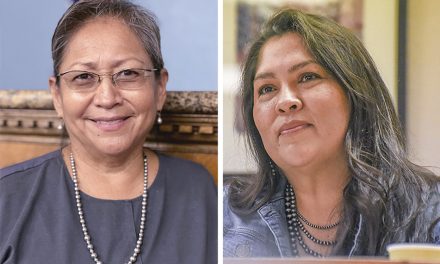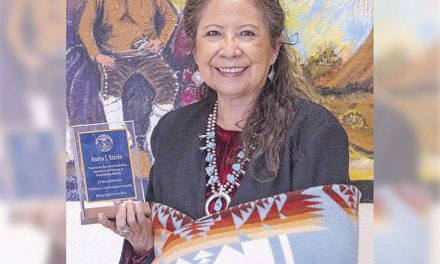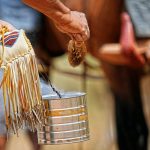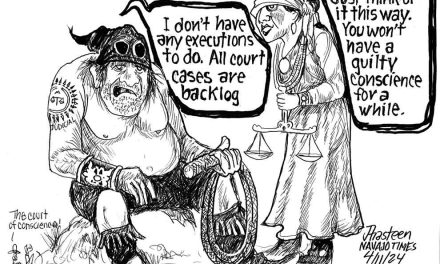
50 Years Ago: Council mulls contract for tribe’s legal affairs
The Navajo Tribal Council spent three days discussing who should be hired to oversee the tribe’s legal affairs and in the end it appears that three attorneys and law firms will be representing the tribe, at least temporarily.
For the past four years, Harold Mott handled legal matters, working out of Phoenix. In March of 1970, his contract was renewed for one year. That contract provided him with $100,000 but it required him to pay the salaries for an attorney stationed in Window Rock to take care of small stuff, such as looking over contracts.
Mott had been a close associate the tribe’s former chairman, Raymond Nakai, and since he had the support of most members of the Council, Mott was easily chosen every year to hold the post.
In the past, the Council would chose a person to be general counsel but MacDonald decided that the legal affairs of the tribe were getting to be too much for one person to handle so he asked the Council to approve a contract with Brown, Bain and Vlassis.
He also decided that the tribe needed an influential voice in Congress because of the ongoing land dispute with the Hopis so he chose the Washington, D.C., law firm of Wilkinson, Cragun and Barker to deal with Congress and federal agencies.
Mott would continue representing the tribe in its claims lawsuits centered o the illegal taking of tribal land. He was to be paid a commission of 19% of the value of any land or monies he collected.
This would become a major issue when the land dispute with the Hopis was finally resolved with both tribes receiving half of the 1.8 million acres in dispute.
Mott argued he was due a fee of more than a million dollars for getting the tribe ownership more than half the land but the tribe argued that the half they won was already owned by the tribe.
This ended in a legal battle. I can’t remember the final outcome but I remember Mott was not happy with the amount and claimed it barely paid for the expenses he incurred while representing the tribe.
The Brown firm was to be paid $104,000 a year while the Washington firm was to get $40,000. Both law firms were supposed to bill the tribe $50 an hour for their services.
Although the Brown firm got the contract, the majority of the work was done by one of the partners in the firm, George Vlassis, who would over the next 12 years have a major role in the running of the tribe. MacDonald would depend on his advice in all aspects, including political advice.
Vlassis turned out to be one of the best decisions the Council made under MacDonald. A big man who enjoyed wearing a beard, Vlassis immediately started to make friends with every member of the Council by letting them know that he was available to answer any legal question they had, whether it involved their job or was personal.
When he first appeared before the Council this week, he didn’t have a beard. He had shaved it off because he was told that some members of the Council held the belief that persons who wore beards were trying to hide something and couldn’t be trusted. But once he got the contract, he began growing the beard again.
On a personal note, he had a lot to do with my staying with the Navajo Times for more than four decades. During the MacDonald years, I was fired as managing editor and then as correspondent five times because MacDonald objected to something I wrote or the direction the paper was taking.
I remember on one occasion being called into MacDonald’s office. He was holding a copy of that week’s paper with a picture of a Gallup bar covering the whole front page.
Inside the paper was a long article on how bars in border towns were responsible for thousands of tribal members getting in trouble with the law.
MacDonald didn’t have problems with the story but was incensed at seeing a photo of a bar dominate the entire front page (we were a tabloid at the time) and said he had copies of the paper sent to all members of Congress representing the Navajo people. B ut he took efforts to make sure that members of Congress never saw this issue because it would hurt the image of the tribe.
I was told later that MacDonald was ready to fire me but had been convinced by Vlassis and a couple of aides, Daniel Peaches and Samuel Pete, to just give me a scolding in hopes that that would be enough to make sure it didn’t happen again.
A few weeks later, MacDonald would get upset at another story published in the paper on why residents of Shiprock were actively trying to get him removed as chairman.
This article appeared during MacDonald’s bid for re-election and Vlassis was able to convince him that firing me at that time may hurt him politically. So he decided to wait until after the election and have the tribe’s new vice chairman, Frankie Paul, make the announcement.
Thanks to Vlassis and my other supporters, within days of my firing, I was rehired as a correspondent and MacDonald was told that this would keep me under control.
Although Vlassis was considered to be the tribe’s general counsel, two other attorneys in the firm, Larry Ruzow and Katherine Ott, would spent a lot of time working on the tribe’s legal issues. Both followed Vlassis’ approach and made themselves available at all times to members of the Council.
I remember visiting their office in Window Rock one day in 1979 and seeing Ott quizzing herself from a stack of 3×5 cards. It turned out that each card had a photo of a councilman on one side and his name on the other. She said she was using this as a way to learn the names if all the members of the Council.
So we had a contest to see who could recognize the most pictures and although I had been attending most sessions of the Council for the past eight years, I found myself unable to recognize a quarter of the Council members. She, however, was spot on – not missing one name.
One other thing I should mention regarding Vlassis.
A couple of years after the contract with his law firm was approved, I managed to get a copy of his bills to the tribe for 1971 and it showed more than a hundred hours of work done by the firm with no hours billed to the tribe.
When I later asked Vlassis, he said this was time used by the attorneys to get the background on the issues and the firm didn’t feel the tribe should have to pay for that.







 Highway 264,
Highway 264, I-40, WB @ Winslow
I-40, WB @ Winslow